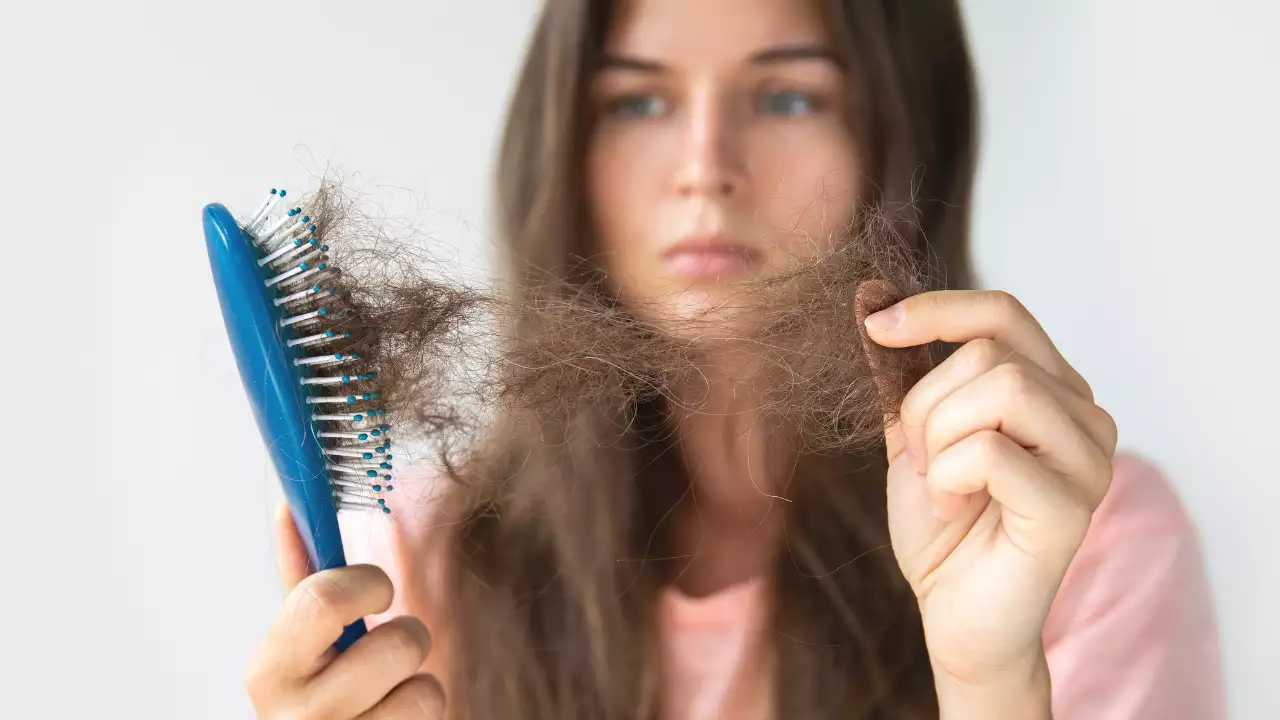Losing hair can feel like losing a piece of your identity. But there’s hope—stress-induced hair loss is reversible.
Have you ever noticed how your hairbrush seems unusually full after a stressful day? Or how the shower drain clogs following an exhausting week? Stress, often dubbed the “silent tormentor,” doesn’t just erode your mental well-being; it can wreak havoc on your hair, too.
For both men and women, hair loss linked to stress is a pervasive yet overlooked issue until it’s too obvious to ignore. The silver lining? Comprehending how stress impacts your hair could hold the solution to curbing it. That’s why experts help demystify the science and uncover ways to minimize shedding.
The Science Behind Stress-Induced Hair Loss
Hair doesn’t fall out immediately after stress. Instead, it manifests in one of three ways:
- Telogen Effluvium: “Stress shocks the system, pushing numerous hair follicles into a resting state. Significant shedding follows a few months later,” explains Dr. Raji Patil, Dermatologist and AGM, Medical Affairs QR678.
- Alopecia Areata: “In some cases, stress triggers an autoimmune reaction, prompting the body to attack its hair follicles, resulting in patchy loss,” he adds.
- Trichotillomania: “Chronic stress or anxiety can provoke an uncontrollable urge to pull out one’s hair, compounding the problem,” Dr. Patil notes.
The positive takeaway? Stress-induced hair loss is typically transient and manageable with the correct approach.
Stress and Hair Loss: Men vs. Women
Stress spares no one, yet its effects on hair can differ between genders. “Men often face accelerated male pattern baldness under stress, particularly if genetics predispose them,” says Dr. Patil.
Women, however, tend to experience diffuse thinning across the scalp. This can be especially distressing given societal emphasis on voluminous hair. Hormonal shifts—such as those during pregnancy or menopause—exacerbate stress-related hair loss in women.
Regardless of gender, addressing the root cause—stress—remains pivotal to restoring hair health.
Combatting Stress to Reclaim Your Hair
To mitigate hair loss tied to stress, Dr. Patil advises managing stress levels proactively. “Incorporate relaxation practices like yoga, meditation, or journaling into your routine. Consume a diet rich in hair-nurturing nutrients such as biotin, iron, and zinc to promote regrowth. Advanced cases might benefit from targeted hair treatments,” he suggests.
By targeting the underlying stress, you’re not just rejuvenating your scalp—you’re rebuilding your self-confidence. Life may bring challenges, but your hair doesn’t have to be a casualty.
Stay informed with the latest news, trends, and expert advice on beauty and lifestyle only on Times Now.


